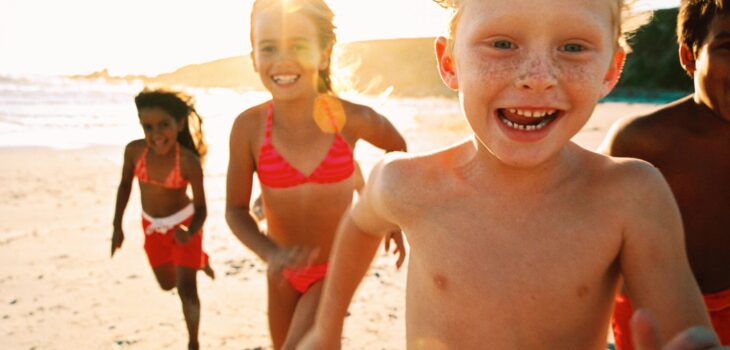 Research
Research
10 Reasons Why Kids Should Play Outside
This is one of the original, and most popular, articles posted on the Kids Discover Nature website when it was first launched back in 2009. Though the research utilized is dated, it is still applicable today. In fact, there have been hundreds of research articles posted online since 2009 on the topic and the results are most often the same. Nature and the outdoors have an undeniable, positive effect on the health and well-being of children.
(Updated 10/2021) You hear it in the news a lot …the important role nature plays in the well-being of children. Intuitively, it makes sense. Running around outside, breathing fresh air, using muscles to jump and climb. But, is there actually proof that shows time in nature positively effects children and their growth and well-being?
I decided to do some research. After searching on Google for less than one minute, I found links to the Children & Nature Network (C&NN) and it’s research library. I found enough to research to keep me reading for the next several weeks. .
After reading some of the research, I feel that in nature, my children are in good hands. I feel a certain sense of “thank you God!” In a world that is increasingly stressful, fast-paced, overwhelming and sometimes deranged, I am thankful to have a place to turn that can nurture and care for me and my children with no strings attached. It costs no money…only time, if we make it. The amazing thing is that it is always there waiting, beckoning, and sometimes pleading for us to to come and play in it and experience all it has to offer.
Below is a synopsis of the 10 main points I learned from my research. Below each heading is the source. There are a multitude of other studies cited and paraphrased on CNN’s website. If you have interest in the topic beyond what I have listed below, I encourage you to peruse their library. The information available is impressive and quite interesting.
Sources:
Abrams, K.S. (1999). Summary of project outcomes from Environmental Education and Sunshine State Standards schools’ final report data. Louv, R. (2005). Last Child in the Woods: Saving Our Children from Nature Deficit Disorder. New York: Algonquin Books. (p. 206) Louv, R. (2005). Last Child in the Woods: Saving Our Children from Nature Deficit Disorder. New York: Algonquin Books. (p. 206)
2. Children and adults find it easier to concentrate and pay attention after spending time in nature.
Sources:
Wells, N.M. (2000). At home with nature: Effects of “greenness” on children’s cognitive functioning. Environment and Behavior 32: 775-795.
Hartig, T., Mang, M., & Evans, G.W. (1991). Restorative effects of natural environment experiences. Environment and Behavior 23: 3-26.
3. Nature provides a rich source of hands-on, multi-sensory stimulation, which is critical for brain development in early childhood.
Source:
Rivkin, M.S. Natural Learning.
4. Children’s play is more creative and egalitarian in natural areas than in more structured or paved areas.
Source:
Faber Taylor, A., Wiley, A., Kuo, F.E. & Sullivan, W.C. (1998). Growing up in the inner city: Green spaces as places to grow. Environment and Behavior 30(1): 3-27.
5. Living in “high nature conditions” buffers children against the effects of stressful life events.
Source:
Wells, N. & Evans, G. (2003). Nearby nature: A buffer of life stress among rural children. Environment and Behavior 35: 311-330.
Louv, R. (2005). Last Child in the Woods: Saving Our Children from Nature Deficit Disorder. New York: Algonquin Books.
6. Views of nature reduce stress levels and speed recovery from illness, injury or stressful experiences.
Sources:
Frumkin, H. (2001). Beyond toxicity: Human health and the natural environment. American Journal of Preventative Medicine, 20(3): 234-240.
Louv, R. (2005). Last Child in the Woods: Saving Our Children from Nature Deficit Disorder. New York: Algonquin Books.
7. The ultimate raw material for much of human intellect, emotion, personality, industry, and spirit is rooted in a healthy, accessible, and abundant natural environment.
Source:
Kellert, Stephen R. (2005). Building for Life: Designing and Developing the Human-Nature Connection.Washington: Island Press.
8. Access to nature nurtures self discipline.
Source: Faber Taylor, A., Kuo, F.E., & Sullivan, W.C. (2002). Views of Nature and Self-Discipline: Evidence from Inner City Children. Journal of Environmental Psychology, 22, 49-63.
9. Nearby Nature Boosts Children’s Cognitive functioning.
Source: Wells, N.M. At Home with Nature: Effects of “Greenness” on Children’s Cognitive Functioning. Environment and Behavior. Vol. 32, No. 6, 775-795.
10. Children diagnosed with attention-deficit/hyperactivity disorder (ADHD) or attention-deficit disorder (ADD) showed reduce symptoms after playing in natural areas.
Source:
Kuo, F.E. & Faber Taylor, A. (2004). A potential natural treatment for attention-deficit/hyperactivity disorder: evidence from a national study. American Journal of Public Health 94(9):1580-1586.

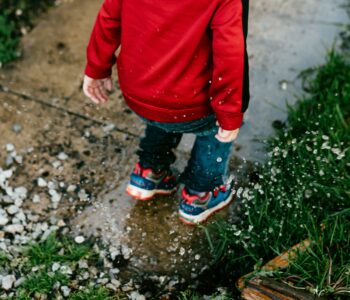
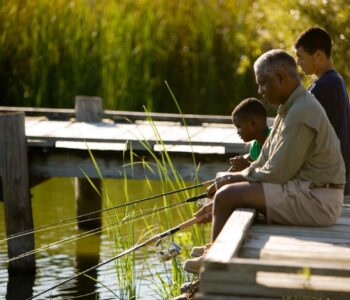
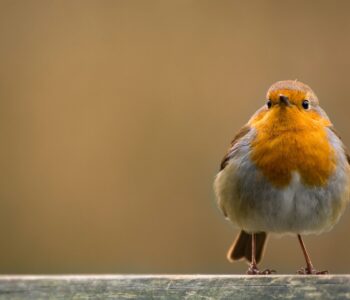
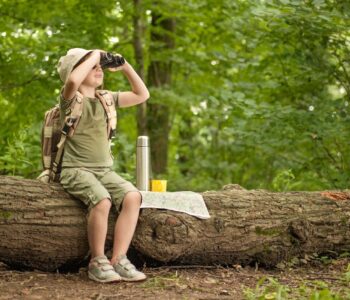
8 COMMENTS
There is evidence that kids are fast rediscovering the outdoors. Given the chance and the right encouragement they love playing outside far more than playing war games.
i have to write an essay on why you should play outside instead of doing homework i need some info. on it
Great post. My son is very active in doing his part to connect kids with nature. He's only nine but he's developed a huge following which just shows how important this issue really is.
You can see his work here: http://www.enzoology.com
How can we help you? We need to work together.
Thanks for putting all these researches. It is really important that kids will play outside even in schools students should be allowed to play in between subjects so they won’t be bored and it will also help them to have strong body.
Your blog provided us with valuable information to work with. Each & every tips of your post are awesome. Thanks a lot for sharing. Keep blogging.. abouthealth.at
This is something all children should have the benefit of. Today too many children are remaining indoors and on technology.
Awesome! This blog inspire parents to allow their kids to play outside. Children needs freedom and time to play which makes them smarter while they explore with all their senses and witness new life.
Thanks for sharing your blog.
Piggyback Rider
Being a child care professional myself and heavily involved in the child care industry, I have written a very similar article on the benefits of playing outside as well.
It really does benefit children socially, psychologically and physically for the better
Comments are closed.